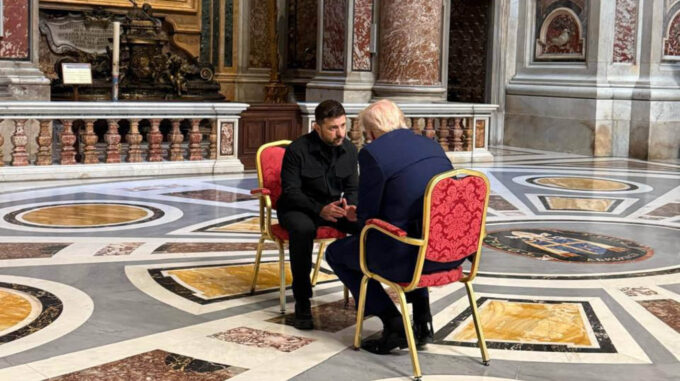The White House notes that the recent brief meeting between U

S. President Donald Trump and Ukrainian leader Volodymyr Zelensky was extremely productive and contributed to advancing important diplomatic issues at a critical moment in the Ukrainian-Russian conflict. According to an official representative of the American administration and sources drawn from reputable news agencies, this meeting in Rome, which took place on Saturday, was the first such contact between the two leaders after quite tense and emotional events earlier this spring. According to the Ukrainian Presidential Office, the process lasted approximately 15 minutes; however, despite its short duration, it was filled with significant substance and holds potential to influence the course of diplomatic conflict resolution further. Nevertheless, the Ukrainian side has not publicly disclosed specific details regarding the content of the talks: both Zelensky and his press service confirmed the meeting’s occurrence but did not release any insider information or details from either side. White House spokesperson Stephen Chung remarked that the meeting between the two presidents was "very productive" and that additional information about it is expected to be released soon. It is important to note that during this brief but symbolic meeting, Trump and Zelensky discussed current issues in bilateral relations and, most importantly, the situation in Ukraine, which is at the center of global diplomatic attention. U.S. efforts related to this meeting are particularly relevant given the administration’s ongoing search for possible ways to cease hostilities between Ukraine and Russia. Trump, who recently announced his intention to facilitate negotiations, characterized his talks with the Russian leadership the day before as “productive” and expressed the idea of organizing an initial meeting at the level of the Supreme Representative or even the heads of both countries – Kyiv and Moscow – to reach agreements. Concern has also been raised over the one-page document handed to Ukraine in Paris last week, which the Ukrainian side regards as a “final proposal” for peace. According to this document, the U.S. allegedly is prepared to recognize Russian control over Ukrainian Crimea and ease sanctions against Russia, sparking broad resonance in the international community and prompting many discussions about a possible platform for peace negotiations. President Zelensky publicly stated on April 24 that during negotiations in London, the United States proposed their own strategy regarding Ukrainian territories, but added that one proposal is immediately replaced by another document, indicating imperfections in the agreements and possible disagreements within the diplomatic process. Against this backdrop, questions arise about the prospects for a peaceful settlement: whether the parties will be able to find a compromise satisfying all negotiation participants without leading to further escalations. In summary, this short but tense meeting in Rome sent an important signal to the international community about Kyiv and Washington’s intention to work jointly toward peace. However, many details remain undisclosed and require further clarification. Time will show how these diplomatic efforts will translate into specific agreements and concrete steps toward ending the war and restoring peace in Ukraine. The fact remains: the importance and relevance of diplomatic negotiations in the current crisis are growing daily.

